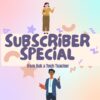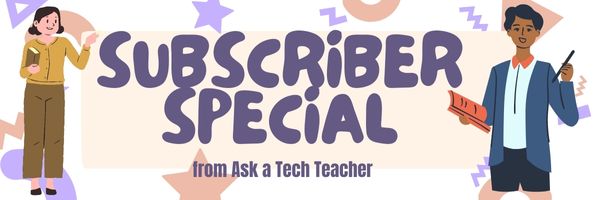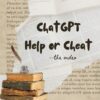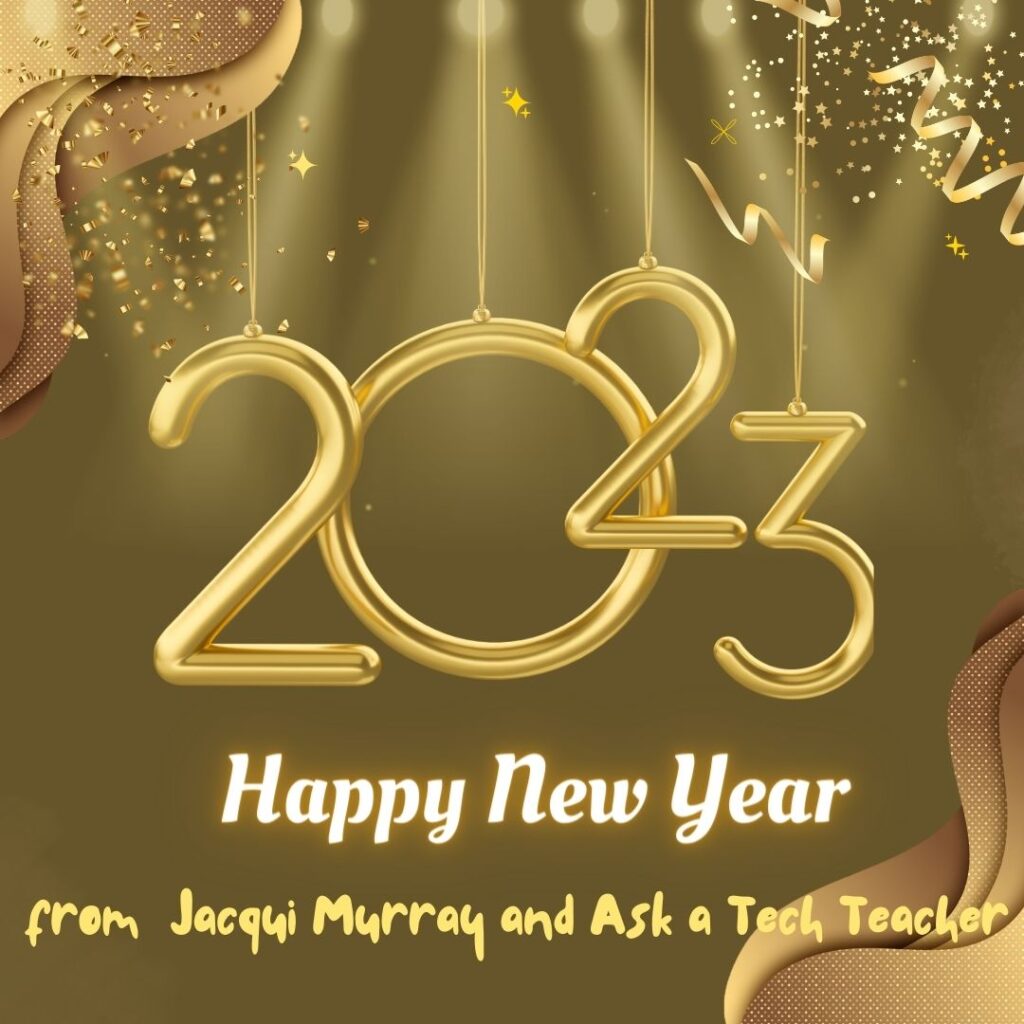11 Ways to Add #Inquiry to Your Class
You became a teacher not to pontificate to trusting minds, but to teach children how to succeed as adults. That idealism infused every class in your credential program and only took a slight bump during your student teacher days. You graduated sure you’d never teach to the test or lecture for 90% of a class.
Then you got a job and reality struck. You had lesson plans to get through, standards to assess, meetings to attend, parents to council, and state-wide tests that students must do well on. A glance in the mirror said you were becoming that teacher you hated in school. You considered leaving the profession. Until a colleague mentioned the inquiry-based classroom, where teaching’s goal was not the solution to a problem but the path followed. It’s what you’d hoped to do long ago when you started–but how do you turn a traditional entrenched classroom into one that’s inquiry-based?
Here are 11 ideas. One or more will resonate with your teaching style:
Share this:
- Click to share on Facebook (Opens in new window) Facebook
- Click to share on X (Opens in new window) X
- Click to share on LinkedIn (Opens in new window) LinkedIn
- Click to share on Pinterest (Opens in new window) Pinterest
- Click to share on Telegram (Opens in new window) Telegram
- Click to email a link to a friend (Opens in new window) Email
- More
Teacher-Authors: What’s Happening on my Writer’s Blog
A lot of teacher-authors read my WordDreams blog. In this monthly column, I share a popular post from the past month here, on my teacher education blog.

National Science Fiction Day is unofficially celebrated by many science fiction fans in the United States on January 2, which corresponds with the official birthdate of famed science fiction writer Isaac Asimov. While not an official holiday of any sort (in the sense that it is not recognized or declared by any government), National Science Fiction Day iss recognized by organizations such as the Hallmark Channel and the Scholastic Corporation.
Though I don’t write sci fi, I celebrate this event every year so I can share the good news about my favorite Indie (some hybrid) science fiction writers:
Jacqui Murray (yes, me! in my early tech thrillers)
Share this:
- Click to share on Facebook (Opens in new window) Facebook
- Click to share on X (Opens in new window) X
- Click to share on LinkedIn (Opens in new window) LinkedIn
- Click to share on Pinterest (Opens in new window) Pinterest
- Click to share on Telegram (Opens in new window) Telegram
- Click to email a link to a friend (Opens in new window) Email
- More
4 Tips on Getting into Princeton
Getting into your dream university–especially if it’s Ivy League–is not an easy task. One of our Ask a Tech Teacher contributors has four suggestions to make it easier:
How Hard is it to Get into #Princeton University?
Located in Princeton, New Jersey, Princeton is a member of the prestigious Ivy League. It is famous for its academic excellence and distinguished faculty. The university is one of the top universities in the United States. Thus, admission is sought after by students from around the world. If you are considering applying to Princeton, it is important to understand the admissions process and what the university is looking for. (more…)
Share this:
- Click to share on Facebook (Opens in new window) Facebook
- Click to share on X (Opens in new window) X
- Click to share on LinkedIn (Opens in new window) LinkedIn
- Click to share on Pinterest (Opens in new window) Pinterest
- Click to share on Telegram (Opens in new window) Telegram
- Click to email a link to a friend (Opens in new window) Email
- More
Subscriber Special: free-lesson-plan
January 4th-9th
the 56-page PDF, “25 Digital Tools for the Classroom”
for free!
“25 Digital Tools for the Classroom” is a thorough discussion on which are the most useful tools in a K-8 classroom, organized by grade level. This includes popular digital tools such as blogs, backchannel devices, vocabulary decoding tools, avatars, digital portfolios, digital note-taking, as well as others you may not have thought of. Here’s what you do:
- Sign up for our newsletter, Weekly Websites, Tech Tips, and Tech Ed News. If you already subscribe, qualify by purchasing one of our resources on the Structured Learning website. Any product, any price qualifies.
- Email us the welcome message or receipt you receive (we’re at askatechteacher at gmail dot com). Make the subject line read, “Please send free ’25 Digital Tools for the Classroom'”.
- We’ll send you the collection.
- If the newsletter doesn’t work for you, there’s an ‘unsubscribe’ at the bottom of each email.
Share this:
- Click to share on Facebook (Opens in new window) Facebook
- Click to share on X (Opens in new window) X
- Click to share on LinkedIn (Opens in new window) LinkedIn
- Click to share on Pinterest (Opens in new window) Pinterest
- Click to share on Telegram (Opens in new window) Telegram
- Click to email a link to a friend (Opens in new window) Email
- More
What are VPNs and How Do They Work?
If you’re like me, VPNs are confusing. They protect me by hiding my IP address from prying eyes, but also change the way I browse and not always in a good way. I tried one which made it impossible to send Outlook emails. I had to turn it off every time I wanted to send.
But, everyone needs one these days. Some are built into browsers. Others, you buy as downloadable software. For those who received a year subscription to a VPN for a holiday gift, this article from the Ask a Tech Teacher crew will give you a quick understanding of what’s in your future:
What are VPNs and How Do They Work?
If you’ve heard the term VPN, wondered what it meant, or noticed that people were using it to stay secure online, you’re in the right place. This blog post will explain exactly what a Virtual Private Network (VPN) is, how it works, and why some people prefer using it for their digital security needs. By the end of this article, you’ll have a working knowledge of VPNs.
Share this:
- Click to share on Facebook (Opens in new window) Facebook
- Click to share on X (Opens in new window) X
- Click to share on LinkedIn (Opens in new window) LinkedIn
- Click to share on Pinterest (Opens in new window) Pinterest
- Click to share on Telegram (Opens in new window) Telegram
- Click to email a link to a friend (Opens in new window) Email
- More
ChatGPT–Homework Helper or Cheating Aid?
Wall Street Journal sent a young-looking journalist back to high school to test out the effectiveness of the web’s newest homework helper, ChatGPT. It will write entire essays for students, take notes on literature, and compare-contrast chosen pieces in seconds. If you aren’t aware of this hot new (questionable) tool, check out WSJ’s video here:
What are your thoughts on this–education assistant or cheating tool?
Here’s the sign-up link if the image above doesn’t work:
Copyright ©2023 askatechteacher.com – All rights reserved.
–image credit: Deposit Photos
Jacqui Murray has been teaching K-18 technology for 30 years. She is the editor/author of over a hundred tech ed resources including a K-12 technology curriculum, K-8 keyboard curriculum, K-8 Digital Citizenship curriculum. She is an adjunct professor in tech ed, Master Teacher, webmaster for four blogs, an Amazon Vine Voice, CSTA presentation reviewer, freelance journalist on tech ed topics, and author of the tech thrillers, To Hunt a Sub and Twenty-four Days. You can find her resources at Structured Learning.
Share this:
- Click to share on Facebook (Opens in new window) Facebook
- Click to share on X (Opens in new window) X
- Click to share on LinkedIn (Opens in new window) LinkedIn
- Click to share on Pinterest (Opens in new window) Pinterest
- Click to share on Telegram (Opens in new window) Telegram
- Click to email a link to a friend (Opens in new window) Email
- More
Top Ten for 2022

Since we at Ask a Tech Teacher started this blog fourteen years ago, we’ve had almost 5.9 million views, about 10,000 followers who read some or all of our 2,931 articles on integrating technology into the classroom. This includes tech tips, website/app reviews, tech-in-ed pedagogy, how-tos, videos, and more. We have regular features like:
If you’ve just arrived at Ask a Tech Teacher, start here.
It always surprises us what readers find to be the most and least provocative topics. The latter is as likely to be a post one of us on the crew put heart and soul into, sure we were sharing Very Important Information, as the former. Talk about humility.
Here they are–my top 10 lists for 2022:
Share this:
- Click to share on Facebook (Opens in new window) Facebook
- Click to share on X (Opens in new window) X
- Click to share on LinkedIn (Opens in new window) LinkedIn
- Click to share on Pinterest (Opens in new window) Pinterest
- Click to share on Telegram (Opens in new window) Telegram
- Click to email a link to a friend (Opens in new window) Email
- More
Public Domain Day and Happy New Year!
Every year, January 1st is Public Domain Day. This is an observance of when copyrights expire and works enter into the public domain–free for all to use. According to Public Domain Review, here are some of the newly-available artistic works you might like a/o January 1, 2023:
The picture above is interactive. If you click it, you enter Public Domain Review’s website and can then explore each of these new sources of inspiration, free to use.
One that caught my attention is Winnie the Pooh, now in the public domain. Knowing that, I should feel comfortable posting his picture: (more…)
Share this:
- Click to share on Facebook (Opens in new window) Facebook
- Click to share on X (Opens in new window) X
- Click to share on LinkedIn (Opens in new window) LinkedIn
- Click to share on Pinterest (Opens in new window) Pinterest
- Click to share on Telegram (Opens in new window) Telegram
- Click to email a link to a friend (Opens in new window) Email
- More
Happy New Year!
Share this:
- Click to share on Facebook (Opens in new window) Facebook
- Click to share on X (Opens in new window) X
- Click to share on LinkedIn (Opens in new window) LinkedIn
- Click to share on Pinterest (Opens in new window) Pinterest
- Click to share on Telegram (Opens in new window) Telegram
- Click to email a link to a friend (Opens in new window) Email
- More
A New Approach to Learning Through ChatGPT, AI Tools
In case you are not familiar with neural networks or have not used AI-based tools, you will be surprised to learn that solutions like ChatGPT tend to use the principles of transformer architecture. The core idea is an analysis of the lengthy bits of text where the system analyzes the keywords and sequences used to create a natural language flow. It also makes learning through ChatGPT and similar tools suitable for learning purposes and even works with autistic and dyslexic students who require more profound assistance with memorization, spelling, and pronunciation training. What makes it truly different is the level of customization and flexibility that becomes possible with the latest version builds.
Ask a Tech Teacher contributor, Jodi Williams, discusses:
A New Approach to Learning Through AI Tools
- New Approach to Customer Assistance.
Although the use of Chat GPT and similar offerings are best known for their use as an intelligent chatbot implementation, it is way more than that! It is also a great way to learn about the demands of the customers, keep track of things, and keep them engaged while you seek information or choose the best products by looking through the database. The most important is to input correct information and keep things at a conversational level. If you want to explore things deeper, consider custom research paper writing help and see what phrases and linguistic constructions will work best for your needs.
Share this:
- Click to share on Facebook (Opens in new window) Facebook
- Click to share on X (Opens in new window) X
- Click to share on LinkedIn (Opens in new window) LinkedIn
- Click to share on Pinterest (Opens in new window) Pinterest
- Click to share on Telegram (Opens in new window) Telegram
- Click to email a link to a friend (Opens in new window) Email
- More




















































